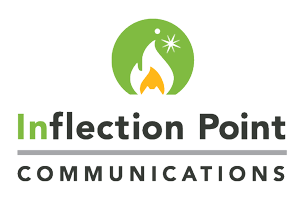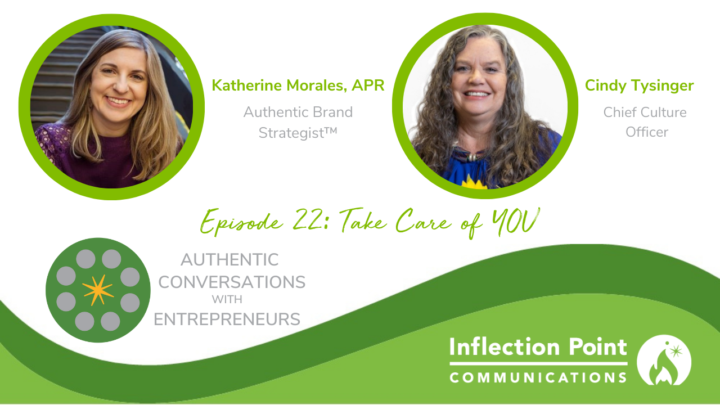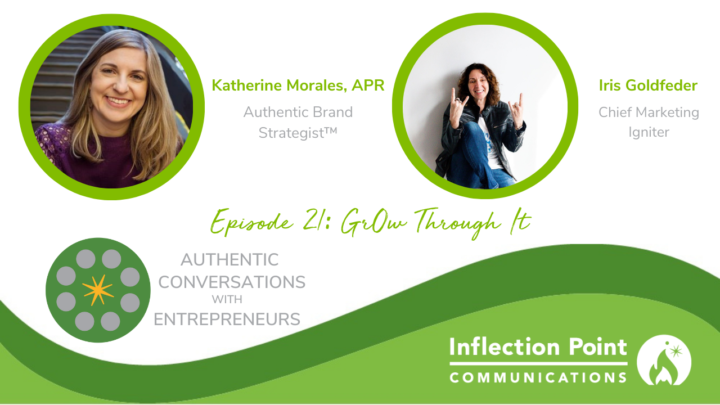Congratulations! You’ve secured a media interview and now it’s time to spread the word about your company, product and/or service. But, where will you begin? How can you ensure your message gets across to the audience – inspiring interest and/or action?
Earlier this week, I was scheduled to do my own media interview on biz1190 with “The Eric Holtzclaw Show” to talk about none other than entrepreneurship, PR and brand building. As I prepared for the interview in the days ahead, I found myself reflecting on the coaching, tips and preparations I’d shared so many times before with both executives and business owners alike.
Following are the three key tips everyone should follow in preparing for a media interview:
Tip #1: Do your research.
Never walk into an interview blind. You should be familiar with both the reporter and media outlet.
Do your research to learn more about the publication or station, its distribution/reach and audience. By understanding who its readers, viewers or listeners are and what knowledge or value they expect to receive from the media outlet, you can better plan for your upcoming interview.
When you research the reporter, it’s helpful to 1) read his/her bio so that you can personally connect with them and 2) study their most recent and/or related pieces so you’re more familiar with their interview style and position on the relevant topic. If it’s a broadcast interview, you can study the questions they may ask you directly. If it’s an article, you may have to analyze various published pieces that are similar to your interview topic/industry and anticipate potential questions you may receive.
You want to clearly understand who your interviewer is, why they are interested in interviewing you and what format the interview will take place in (e.g., in-person, by phone or via web; pre-recorded or live; on TV, the radio, via podcast, online and/or in print). If you are unclear of any of the interview details – what, where, when, who and how – ask the reporter so that you have full clarity and there are no surprises.
Tip #2: Clarify your message.
Now that you have a greater sense of who will be interviewing you and who will be your audience, you want to hone in on your key messages. There is a reason you secured and/or the reporter reached out to you to request this interview. What story do you have to share? What do you want the audience to know or learn about you and your company as a result of this interview? The beauty of receiving earned media is that it allows your brand the opportunity to connect authentically with potential new customers via a highly-trusted channel (versus less-trusted channels such as paid advertisements or owned/social media). Let your brand’s personality shine!
Create an outline for your interview including the three to five key messages you want to be sure to hit on. These will serve as your guideposts for the interview and ensure that no matter what questions you may receive; you’ll find a way to lead the interview back to the story you want to convey. Think in small, digestible (sound) bites. Whether it’s an interview for a printed piece or on-air, the reporter and your audience want to understand your brand and expertise. Be quotable and don’t use too much jargon without helping to educate the audience.
Tailor your messages to what knowledge or value the audience expects to receive and seek to influence their thoughts or actions as a result of hearing your interview (e.g., visit your website, purchase a product, attend an event, etc.).
Tip #3: Prepare and practice.
Finally, it’s time for the big rehearsal before the show. In the arts, you’d never think of going on stage without several rehearsals. It’s crucial for every spokesperson (i.e., interviewee) to practice responding to potential questions and delivering their key messages with varying, yet consistent phrasing. If you want to drive home a point with your audience, it’s important to communicate your key messages in concise, clear and consistent phrases. And, that takes practice!
Find a friend or colleague to help you practice. And, if it’s an on-camera interview, consider recording a dress rehearsal on video so you can review your key messages, tone and body language. Be sure to also study current events and/or trends in your industry, as well as any applicable stories or examples you can share to better captivate your audience and illustrate your points. Stay on topic!
By preparing and practicing for your interview a day or two in advance, you will boost your confidence going into the interview, better control your message and ensure your brand credibility is clearly conveyed.
After the interview, don’t forget to thank the reporter and inquire about how soon the piece may run (if the interview was not live). You’ll want to expand the reach and extend the life of your interview by sharing it on your company’s website and social media channels. Don’t miss the opportunity to show your appreciation and support to the reporter/media outlet by thanking them and sharing the piece. It’s very common for reporters to revisit you and your brand for future interviews once that are familiar with your unique expertise. Or, you may want to reach back out to them in the future when you have a new product, service or initiative to share. Don’t let your interview be a one-time event. Keep in touch with the reporter and seek to build a relationship for the long-run. Like all things in business, build connections and expand your network!
Happy interviewing and best of luck!





